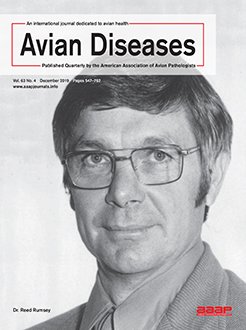Turkey arthritis reovirus (TARV) causes tenosynovitis in turkeys, resulting in decreased profits for producers due to the increase in morbidity, mortality, and feed conversion ratio. There is limited information on TARV epidemiology, including the dynamics of diagnostic submissions to veterinary diagnostic laboratories. In this study, we retrospectively analyzed 719 cases of lameness in turkeys submitted to the Minnesota Veterinary Diagnostic Laboratory from March 2010 to May 2018. Almost all submissions were tendon pools, which were tested by virus isolation and/or real-time reverse transcription–polymerase chain reaction. Most of the submissions were from Minnesota. We found 52% of the submitted cases to be positive for TARV. The TARV-positive submissions increased considerably in the last few years. There was no statistical evidence that TARV diagnostic submissions were seasonal, although positive submissions were higher in January, April, July, and December. TARV-positive submissions also increased as flocks aged. In summary, we found that TARV submissions have increased in the last few years, have varied over time, and are correlated with age of the bird. This information is important guidance for conducting more studies to understand TARV infection dynamics.
How to translate text using browser tools
29 August 2019
Retrospective Analysis of Turkey Arthritis Reovirus Diagnostic Submissions in Minnesota
Maria Barrera,
Pawan Kumar,
Robert E. Porter,
Sagar M. Goyal,
Sunil K. Mor
ACCESS THE FULL ARTICLE

Avian Diseases
Vol. 63 • No. 4
December 2019
Vol. 63 • No. 4
December 2019
arthritis
reovirus
retrospective study
Turkey




